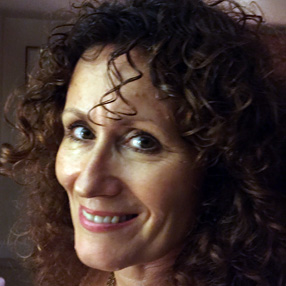Al Shabaab bombings in Kampala – the impact
Evacuation from the bar before either team had scored was the last thing we expected as we watched the World Cup Final that fateful evening in Kampala, July 11th. “What is it with the 11th day of a month?” people keep asking.
We’d been watching the World Cup Final from the crowded Dutch-owned Iguana bar in Kisementi, north side of Kampala, when the texts came through that two well-known locations – the Ethiopian Village restaurant and Kyadondo rugby club – had been bombed. It didn’t seem real.
“On ground at rugby, where are u now? remember u love 2 b in crowded places. ope dis makes sense abt yr security” read the text message from T.
I was relieved to hear T was ok, but why was he at the rugby club (where two of the bombs had exploded)? Had he been watching the game there or had he gone to help out when he heard the news? I told myself not to worry: he’s Ugandan, he’d probably just gone to stand around and look.
I was happy he was safe. When he arrived with breakfast the next morning he said he’d been up all night, visiting the scenes of the bombings with journalist friends and the Deputy Police Commissioner. “Important people need to know what’s going on” he smiled.
He laughed in that unnerving Ugandan way as he recounted how they’d been watching the ‘comic goings-on’ of a cocktail of security – ‘or insecurity’ – police, army and private security companies (of which there are many).
As shocking to me as the bombings has been the media coverage: photos of the victims, the wails of a dying woman, a man being bundled into the back of an ambulance with a stump of an arm in full view, live interviews with victims who are still looking for friends and relatives at the bombing scenes. In the newspaper they even showed a colour photo of birds picking on human remains. Ugandans don’t shy away from the gore and, much as it turns my stomach, I sometimes wonder if we’re overprotective in the West. A shocking picture can have quite an impact.
And so, last Monday, for the third morning in a row, I was woken by a mosquito inside my net. After only 4 and a half hours sleep, disturbed, the events of the previous night come into my mind. I wanted to find out what was happening in Kampala and switched on the news.
Kampala is like a huge village or many interconnected villages. You always know someone who knows someone who was been affected by whatever the issue of the day is.
On that fateful night – 11th July 2010 – we’d gone to Iguana Bar to hang out with Dutch friends. Normally Jan watches football at the Ethiopian Village, in Kabalagala, the nearest bar to her house. She had watched a number of other football games at the Ethiopian Village. I had persuaded her to hang out with us at Iguana that night.
Mike, my old boss at the Uganda Conservation Foundation, had helped establish Uganda’s first rugby team. Tragically, he knew people who died at the Kyadondo bombings.
Uganda is under attack by Al Shabaab (an organisation linked with Al Quaeda) because our soldiers are part of the African Union peacekeeping force in Somalia. Al Shabaab want Ugandan soldiers to withdraw from Somalia. The Army Spokesman said “What terrorists want is a safe haven. They’ve been dislodged from Afghanistan and are looking for somewhere else to operate from. If Somalia stabilises they have nowhere to hide; if Somalia is in chaos they get a safe haven and they have time to build capacity and then no-one is safe.”
People are scared. Terrorist acts are very rare here in Kampala. Today’s rumour, that Al Shabaab are employing pigeons to carry bombs, is typical of the overreaction.
My VSO nurse friend Stacey worked through the night of the bombings at IHK, International Hospital, Kampala’s biggest private hospital, just a few hundred metres from the Ethiopian Village. God only knows what she saw, but she hasn’t been quite right since that night. I’ve thought a lot about my VSO volunteer friends this week. Many volunteer doctors, nurses and cardiologists that are now back home would have been in the thick of it: doctors Rob and Richard in particular, and nurse Duncan, all worked at IHK.
The best I could do was encourage people to donate blood. The supplies are desperately low. My friend Jan and I eventually found our way to the blood bank but were rejected. Our iron count was low. “You should eat liver,” came the answer right back from T, trying to persuade me to eat meat. I just laugh at his constant efforts to convert me to back to eating meat.
There was a moment’s silence at Monday’s Hash for the 70+ victims of the bombings before T attended the vigil of a 24 year old law graduate, brother of a good friend of his, who was killed at the rugby club bombings. He had graduated just two months ago and was from ‘a very humble family’ so getting him through law school was a major achievement (there’s no such thing as grants or even loans for students).
A week later, the National Week of Mourning behind us, Kampala is hosting a week-long meeting of the heads of state of the African Union, as planned, a quick PR strike back at Al Shabaab.
Sixty FBI agents are reported to be in Uganda to help track down the perpetrators and there have been arrests.
It seems like we’ll all be having lots more house parties over the coming weeks. Many NGOs are not letting their workers go out in Kampala for a month until they can assess the security situation so the usual bars and clubs are empty. Kampala has changed overnight.
[NO PHOTOS this week. You wouldn’t want to see them].


























3 thoughts on “The new Kampala post-11/7”